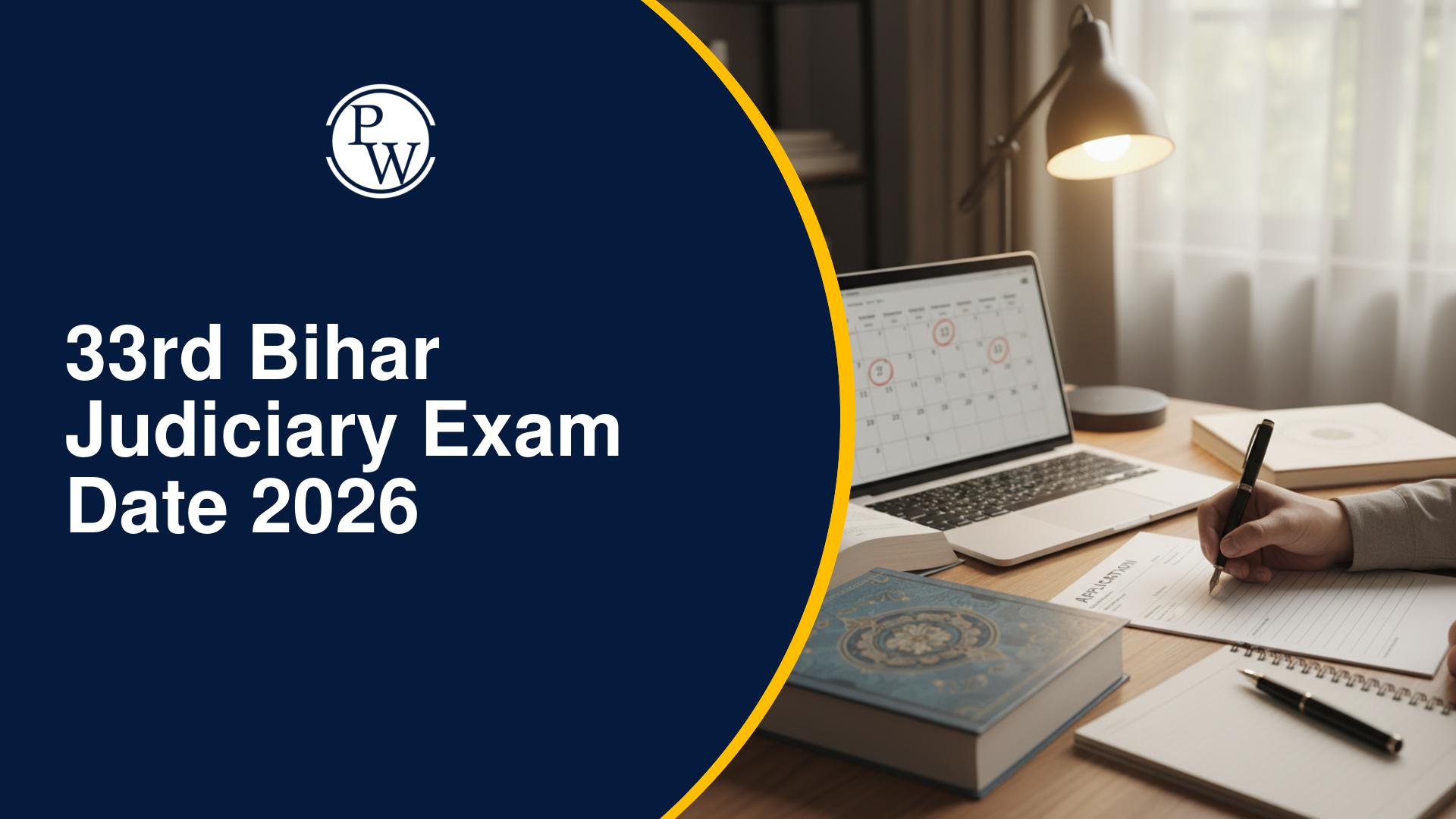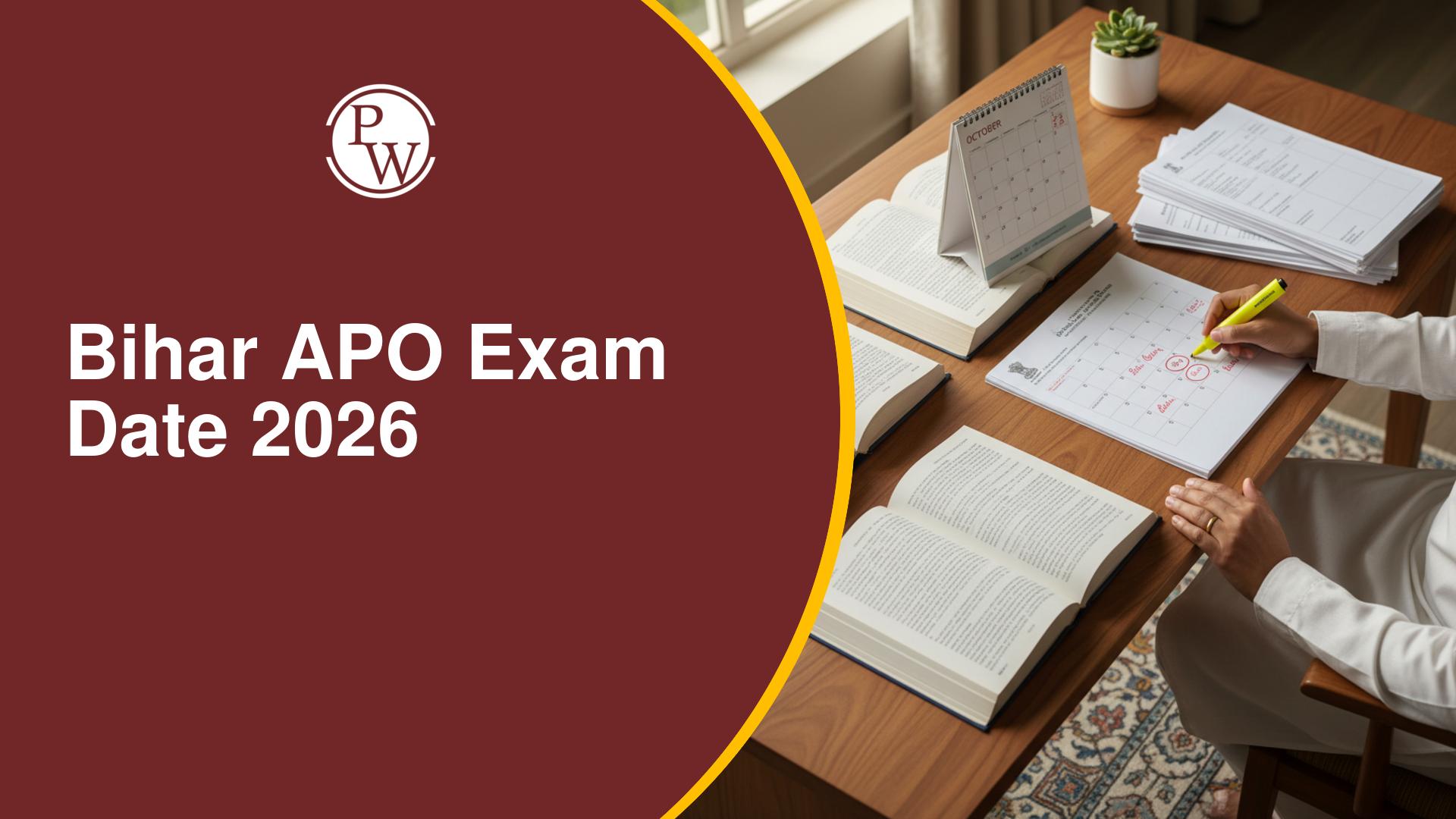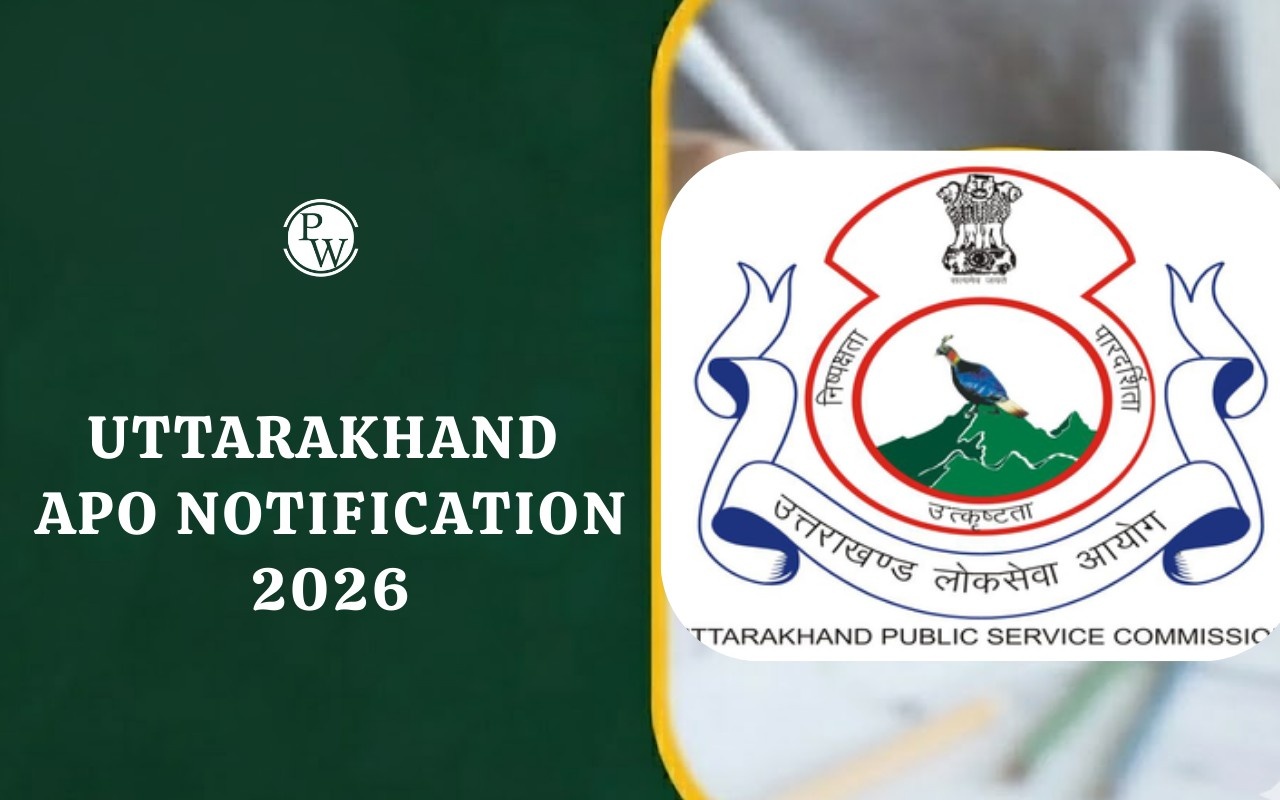
UP Judiciary Exam 2024 Geography
UP Judiciary Exam 2024 Geography Preparation: Getting ready for the geography part of the UP Judiciary Exam? Geography is important for the Civil Judge post's General Knowledge Paper, covering Physical, Human, and Environmental aspects. We delve into natural landscapes, climates, population dynamics, and environmental impact. Our guide offers practical strategies to grasp these concepts effectively, along with tips and tricks to boost your scores and fulfill your Civil Judge goals.
In this article, we'll discuss a comprehensive strategy for the UP Judiciary Exam's geography section, highlight essential topics within Indian and World Geography, provide practical study tips for efficient preparation and scoring, offer free study materials, include sample exam questions, and recommend resources like mock tests and previous papers to aid your preparation.
UP Judiciary Exam 2024 Geography Overview
- Geography is a critical topic in UP PCS J Exam Prelims and Mains.
- It covers Indian and world Geography.
- Questions range from easy to moderate difficulty.
- Around 7 to 8 questions appear in UP Judicial Service Prelims.
- UP Judicial Service Mains includes about 1 or 2 Geography questions.
- Other state judiciaries also include Geography questions.
- In UP PCS J 2020, Basics of India and major world natural regions were emphasized.
- Topics like climate and Human geography have less weightage.
List of Topics for UP Judiciary Exam 2024 Geography Preparation
| Geography Topics | Description |
|---|---|
| Basics of India | - Location, latitude, longitude, time zone, etc. - Neighbours and important straits - States and their positions, states with international boundaries |
| Physical Features | - The Himalayas, including geological formation, climate, vegetation, and biodiversity - The Great North Indian Plains, geological formation, physiographic divisions, climate, vegetation, and significance - Peninsular Plateau, including geological formation, Central Highlands, Deccan Plateau, Western Ghats, Eastern Ghats, Indian Deserts, Coastal plains, and islands |
| River Systems | - Himalayan rivers, Peninsular rivers, River basins - Regional development and planning, Hydropower projects, major dams - West-flowing and east-flowing rivers, Interlinking of rivers |
| Climate | - Monsoons, driving mechanism, El Nino, La Nina - Seasons and Cyclones |
| Minerals and Industries | - Mineral Distribution - Industrial Policies, Location |
| Agriculture | - Land utilisation, Types of agricultural practices - Green revolution, Soils and crops, Irrigation - Land reforms, Animal husbandry, Government schemes |
| Natural Vegetation and Fauna | - Classification of natural vegetation - Rainfall distribution in India - Biosphere reserves, national parks, and Red-listed species |
| Economic Infrastructure | - Transportation (highways, inland waterways, etc.) - Power and energy sector - Conventional and non-conventional sources of energy, Energy conservation |
| Human Geography | - Demographics, and Recent Census |
| World Geography | - Major Natural Regions - Regional Geography of Developed Countries - Regional Geography of Developing Countries - Regional Geography of South Asia |
| Physical Geography | - Geomorphology, including origin of the earth, Interior of the earth - Types and characteristics of rocks, Folding and Faulting - Volcanoes, earthquakes, Weathering - Landforms formed by fluvial, aeolian, and glacial actions |
| Climatology | - Atmosphere, structure and composition - Temperature, Pressure belts of the Earth, Wind systems - Clouds and types of rainfall, Cyclones and anti-cyclones - Major climatic types |
| Oceanography | - Ocean relief, Temperature, salinity, Ocean deposits - Ocean currents, El Nino and La Nina, Waves, and tides |
| Biogeography | - Soil, origin and types - Major world biomes, Ecosystem, food chain - Environmental degradation, and conservation |
| Human Geography | - Man & environment; relationship, growth, and development of human geography; determinism and possibilism - Population, tribes, migration - Economic activities – agriculture, manufacturing, industries, tertiary activities - Settlements, urbanisation, functional classification of towns, million-cities, and megacities |
Important Tips for Geography Preparation for UP Judiciary 2024
Here are 3 tips for preparing for the UP Judiciary exam in 2024:
|
Important Tips for Geography Preparation for UP Judiciary 2024 |
||
|---|---|---|
| Understanding the Syllabus | Understanding Question Patterns | Useful Sources for Preparation |
| Know the topics covered in both Prelims and Mains. | Practice answering MCQs and HOTS questions. | Attempt at least 50 mock tests to understand exam difficulty and pattern. |
| Study important subjects like Indian Geography, History, and Culture. | Prepare question banks for both minor and major topics. | Analyze previous year's papers to prioritize topics. |
| Make a list of topics and focus on them one by one. | Devote 2-3 hours daily to practice, increasing to 4-5 hours on weekends. | Consider mock exams provided by reputable online coaching centers. |
| Prioritize subjects like Economic Infrastructure and Agriculture. | Follow a well-structured timetable to cover all subjects equally. | Include sample exams in your preparation strategy for a comprehensive review. |
Geography Preparation for UP Judiciary: Sample Questions
To do well in the Uttar Pradesh Judicial Service Examination for the Civil Judge position, it's important to practice with previous years' papers from the UP Judiciary. These papers give you an idea of the exam's difficulty level, the types of questions asked, and more.
Below, we've listed some important geography questions from past UP Judiciary exams.
-
What is the capital of India?
- A) Mumbai
- B) New Delhi
- C) Kolkata
- D) Chennai
-
Which river is known as the "Ganga of the South"?
- A) Brahmaputra
- B) Yamuna
- C) Godavari
- D) Kaveri
-
Which state is known as the "Rice Bowl of India"?
- A) Punjab
- B) Kerala
- C) West Bengal
- D) Andhra Pradesh
-
The Himalayas are located in which region of India?
- A) Western India
- B) Southern India
- C) Northern India
- D) Eastern India
-
Which Indian state is known for its tea plantations?
- A) Rajasthan
- B) Assam
- C) Gujarat
- D) Haryana
-
The famous Ajanta and Ellora caves are located in which state?
- A) Maharashtra
- B) Karnataka
- C) Madhya Pradesh
- D) Uttar Pradesh
-
Which desert is located in the western part of India?
- A) Thar Desert
- B) Sahara Desert
- C) Gobi Desert
- D) Kalahari Desert
-
The Western Ghats run parallel to which coast of India?
- A) Eastern Coast
- B) Western Coast
- C) Northern Coast
- D) Southern Coast
-
Which river is known as the "Sorrow of Bihar"?
- A) Ganges
- B) Brahmaputra
- C) Kaveri
- D) Gandak
-
Which city is located at the confluence of the Ganges and Yamuna rivers?
- A) Varanasi
- B) Lucknow
- C) Patna
- D) Allahabad
-
The highest peak in India is:
- A) Mount Everest
- B) K2
- C) Kanchenjunga
- D) Nanda Devi
-
Which of the following is a Union Territory in India?
- A) Bihar
- B) Kerala
- C) Andaman and Nicobar Islands
- D) Punjab
-
Which river flows through the Grand Canyon?
- A) Colorado River
- B) Nile River
- C) Amazon River
- D) Mississippi River
-
Which ocean is the largest and deepest on Earth?
- A) Atlantic Ocean
- B) Indian Ocean
- C) Pacific Ocean
- D) Arctic Ocean
-
Which country is known as the Land of the Rising Sun?
- A) China
- B) Japan
- C) South Korea
- D) Thailand
-
The Great Barrier Reef is located off the coast of which country?
- A) Brazil
- B) Australia
- C) South Africa
- D) India
-
Which continent is also known as the "Dark Continent"?
- A) Africa
- B) Europe
- C) Asia
- D) Australia
-
Which mountain range separates Europe and Asia?
- A) Andes
- B) Himalayas
- C) Urals
- D) Alps
-
The Amazon Rainforest is primarily located in which country?
- A) Brazil
- B) Peru
- C) Colombia
- D) Venezuela
-
Which river is the longest in the world?
- A) Nile River
- B) Amazon River
- C) Yangtze River
- D) Mississippi River
Answers:
- B) New Delhi
- C) Godavari
- D) Andhra Pradesh
- C) Northern India
- B) Assam
- A) Maharashtra
- A) Thar Desert
- B) Western Coast
- D) Gandak
- D) Allahabad
- A) Mount Everest
- C) Andaman and Nicobar Islands
- A) Colorado River
- C) Pacific Ocean
- B) Japan
- B) Australia
- A) Africa
- C) Urals
- A) Brazil
- A) Nile River
UP Judiciary Exam 2024 Geography Preparation Tips
Preparing for the geography section of the UP Judiciary Exam requires focused efforts, a clear grasp of the syllabus, and strategic study methods. By following these tips:
- Understand the Syllabus : Ensure a thorough understanding of the syllabus to cover all topics effectively.
- Practice Variety of Questions : Boost confidence and readiness by practicing with diverse questions, including previous years' papers and mock tests.
- Use Quality Study Material : Utilize reliable study resources and revisit essential topics like Indian Geography, World Geography, and Human Geography for better scores.
Consistent preparation and a well-structured study plan are crucial for mastering the geography section. Download recommended study material and utilize available resources to achieve your goal of becoming a Civil Judge.
UP Judiciary Exam 2024 Geography FAQs
What is the UP judiciary preliminary exam syllabus 2024?
How to apply for up judiciary exam 2024?
Who is eligible for up judiciary exam 2024?
Which state has toughest judiciary exam?
Can I crack judiciary?










